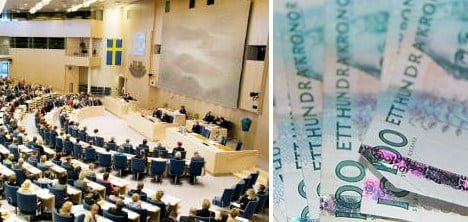After the 2008 financial crisis, there was much talk about the failure of markets. However, with the growing worry about government debt, the focus has shifted to politicians’ failures.
It is clear from the situation in Greece, the United States and other countries that governments are far from perfect. A new report from the Moderate Youth League (MUF) investigates this.
We conclude that the reasons for the debt crisis are a number of government failures that cause politicians to run larger budget deficits than anyone really wants – economists call this phenomenon deficit bias.
In some cases, such as in southern Europe, this eventually results in a loss of investor confidence and a deep crisis.
One reason for deficit bias is that voters may have better information about spending and taxes than about deficits.
Hence they fail to perceive that politicians run too large deficits that will need to be repaid in the future. A second reason could be that politicians commit to future austerity policies rather than implementing immediate cuts.
But because these politicians may not be in power when the policies are due, the commitment is not credible.
Lastly, deficit bias could be caused by a failure of interest groups to agree on cuts. Each interest group wants to appear willing to bring the economy close to a crisis to improve its bargaining position and so have to face a smaller share of the burden.
If all interest groups behave in this way it will be difficult to agree on austerity measures before it is too late.
Because the political system is far from perfect, checks and balances are needed to counteract populism and myopia.
Although Sweden’s current Moderate Party-led government pursues responsible fiscal policies, we do not know which politicians will be elected in the future.
Therefore we propose strengthening the Swedish political system by amending the constitution with a prohibition of government debt default.
We also propose that binding limits on the deficit – e.g. at most three percent of GDP in peacetime – are made into law.
Overall we conclude that the risks of high government indebtedness are substantial while the benefits of fiscal stimulus are small.
Therefore we recommend all countries that are currently in deficit to implement immediate cuts in government spending in order to return to a balanced budget as soon as possible.
Jacob Lundberg
Member of the Moderate Youth League working group for economic policy



 Please whitelist us to continue reading.
Please whitelist us to continue reading.
Member comments